Alex Stepanov

Greatest Common Measure: The Last 2500 Years
Presentation (as PDF)
The talk describes development of Euclid's algorithm from early Pythagoreans to modern times. This development shows gradual evolution of a notion of abstract (or generic) algorithm. We maintain that while the term "generic programming" was introduced by Musser and Stepanov in 1988, the notion of algorithmic genericity goes back to remote centuries and is one of the main driving forces of mathematical progress. We will encounter some remarkable men and one great woman.
Biography
Best known as the creator of the Standard Template Library for which he shares (with Linus Torvalds) the first Dr. Dobb's Excellence in Programming Award (1995), Alex has been pushing the envelope of Computer Science for over thirty years.
Alexander Stepanov is a Principal Scientist at Adobe Systems. Prior to joining Adobe, Alex was Vice President and Chief Scientist at Compaq Computer Corporation where he led the development of the top-level corporate technology roadmap and was also responsible for initiating strategic relationships with some major software partners. Before Compaq, Alex was working on technology directions as VP and Chief Architect at AT&T Laboratories and as CTO of Server and Supercomputer Business Unit of SGI.
Before his five year stint as an executive, Alex spent 25 years doing research at Hewlett-Packard Laboratories, AT&T Bell Laboratories, General Electric Corporate R&D, Polytechnic University, Institute of Control Problems (IPU) and Institute of Complex Automation (TzNIIKA) working in the areas of generic programming, programming language design, storage systems, path-planning algorithms, and real-time operating systems.
From 1967 to 1972 Alex studied Mathematics at the Moscow State University and received a diploma of teacher of Mathematics from Moscow District Pedagogical Institute in 1973.
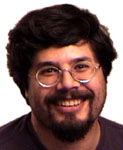
Chris Page
Dylan Grand Tour
Presentation with notes (as Keynote .zip)
Presentation with notes (as PDF)
Maybe it was his time on the Harlequin Dylan team, or maybe it was just the epiphany he experienced when reading the Dylan Reference Manual, but Chris never tires of sharing the Dylan experience, and showing today's programmers how Dylan and its lessons can benefit developers using current tools in current environments.
Learn from an expert about the benefits of the language and the environments, and learn as well about the Dylan environments you can use today. After the formal session, Chris will lead a hands-on experience with a language that can simplify the development process.
Chris currently works at Palm on secret stuff.
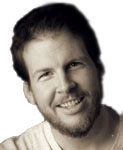
Sean Parent
Sean is a researcher at Adobe Systems in the advanced technology group. His current project is a declarative system for modelling "user interface logic". Sean has been at Adobe since 1993 when he joined as a senior engineer working on Photoshop.
From 1988 through 1993 Sean worked at Apple where he was part of the system software team that developed the technologies allowing Apple's successful transition to the PowerPC RISC processor. Some of these technologies are being reused by Apple as part of their transition to the Unix based OS X.
Sean holds a number of software patents and is a graduate of Seattle University.
Untangling Software
Presentation (as PDF)
For those who remember the spaghetti code of Fortran and Basic current object oriented systems look surprisingly familiar in the degree of code entanglement and complexity.
This talk is a look at where some of the complexity comes from, why popular technologies such as OO Frameworks contribute to it, and what can be done to untangle and simplify code.
C++ and Value Semantics
From polymorphic objects in C++ to "everything is a reference" in Java, pointer semantics have become so entrenched that programmers have become blind to the unnecessary complexity that pointer semantics bring to software.
This talk will discuss the problems with pointer semantics, ways to implement efficient value semantics, and the role value semantics play in using C++.
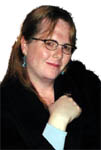
Lisa Lippincott
The Nitrogen Manifesto (PDF)
Lisa Lippincott designs hot new internet technology, even now that it's unfashionable. Since 1996 she's been designing it at BigFix, finding ways to deliver information about computer problems to people who have problematic computers. She's known for her C++ language lawyering, for her award-winning hack "Unfinder," and, less widely, for her work in mathematical logic and computational number theory. Nevertheless, she suspects she is not the "one great woman" to whom Alex refers.
Lisa will describe an economical approach to adapting C libraries for use in C++, exemplified by Nitrogen, a C++ interface to Apple's Carbon library.
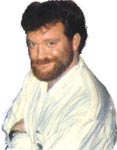
Paul Snively
Paul Snively is a 20-year veteran of the software industry, having cut his teeth on a TRS-80 Model I and Z-80 assembly language at home, Lisp Machines and VAXClusters in college, and his first Macintosh in 1985. The Computer Science/Functional Programming thing stuck, but he likes to build stuff, too, so he's been struggling valiantly to marry computer science and software engineering ever since, at shotgun-point if needs be. This mission has taken him from working on the TMON debugger at ICOM Simulations to MacDTS at Apple Computer to hacking games at Activision to doing server-side Java. He's also been a contributing editor for MacTech Magazine, a technical reviewer for Paradigms of Artificial Intelligence Programming: Case Studies in Common Lisp by Peter Norvig, and is deeply involved in the Whisper and Seppuku open-source projects.
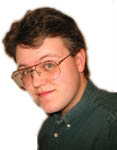
Jonathan 'Wolf' Rentzsch
A Skeptic's Introduction to Objective-C
Presentation (as Keynote .key.sitx)
Presentation (as PDF)
Wolf provides a Skeptic's introduction to Objective-C. Join a nonbeliever who actively resisted learning the language, as he enumerates Objective-C's faults in blistering detail. However, you'll also learn what Objective-C gets incredibly right, and what makes it part of the best rapid advanced application building experience on the planet.
While we're there, ask him about runtime exception morphing.
Wolf is the embodiment of Red Shed Software. He runs a Macintosh Programming Special Interest Group in the NorthWest Chicago suburbs. In between reading and coding, he'll venture outside for a bike ride or will pontificate on various list servers about obscure topics. He encourages his competitors to purchase and mandate the use of products with the most market share.
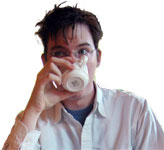
Mac Murrett
Boost
Presentation (as PowerPoint .ppt)
Boost Examples (.sitx)
Mac is a regular contributor to Boost, and implemented Boost.Thread for Mac OS Carbon, added Pascal function support to Boost.Bind, and a couple other little things.
During the day, Mac is a Principal Software Engineer at Vanteon, designing and developing custom software solutions; by night he is Trucker Software, reverse-engineering CoreGraphicsServices and creating cutting-edge software for Mac OS X. He lives in Rochester, NY, where everything closes at 10 PM. This gives him plenty of time to think.
Mac graduated from SUNY: University at Buffalo with a degree in Mathematics. He has been programming Macintoshes since he was 12 years old, and won the Best Hack Contest at MacHack 2001. Nonetheless, he swears up and down that his name has nothing to do with the computer.
Matt Austern, Mat Marcus, Jon Kalb
The Future of C++
Leading participants in the standards process discuss the future of C++.
Chris Strompolis
What happens when 12 year olds decide to shoot a remake of Raider of the Lost Ark? Seven years of hard work, risky shoots, loads of costumes, sets and props, and one amazing surprise screening at a languages and libraries conference, capped off with four hours of lively discussion and s'mores around the campfire.
|



